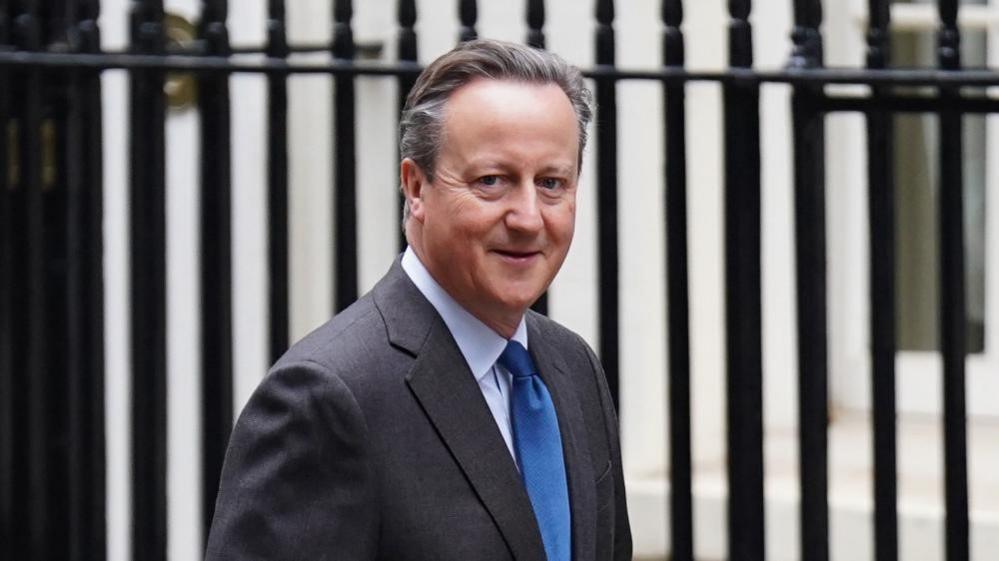Is Rishi Sunak's approach convincing or confusing voters?
- Published
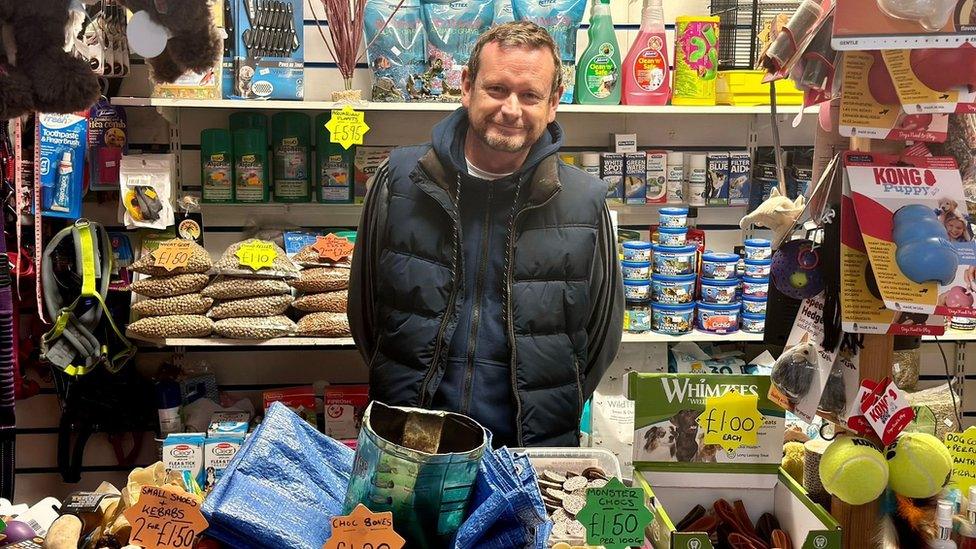
David Griffiths at his stall in West Bromwich's indoor market
From warm coats for pet pooches to sprout-shaped cuddly toys and even dog cologne, there's an array of treats for animal lovers on offer in West Bromwich's indoor market.
Dave Griffiths' pet stall has been there for over 30 years, and the market trader witnessed the town's political shift from a long-held Labour seat to a Conservative constituency in 2019 - though he's uncertain about where it will turn next.
"There are so many extremes - left and right," he says. "I'd say the majority of people in this country don't agree with that.
"They are somewhere in the middle - just a little more to the left, a little more to the right. There is nobody really representing them."
He says voters don't want to turn to the extremes of politics but get frustrated when things don't get done.
Events in Westminster this week have reopened fissures within the Conservative Party.
Rishi Sunak's cabinet reshuffle which saw the sacking of former Home Secretary Suella Braverman and the shock return of David Cameron to front-line politics, followed by the government's legal defeat over its plan to send asylum seekers to Rwanda, have reignited division and discussion about the party's direction.
In West Bromwich's busy high street with the regular market in full swing, this hasn't escaped the notice of shoppers.
John has voted for the Conservatives in the past but thinks the prime minister is "silly" if he thinks his plans for Rwanda will work.
"The judges have already said it is illegal. Is he going to purposely break the law?"
He says he likes David Cameron but doesn't have faith in Rishi Sunak.
And Keir Starmer? "All he seems to do is complain," he says.
Margaret and Lynda aren't happy to see David Cameron come back. "He walked away when it got too much for him," they say, recalling the former prime minister's resignation after the Brexit vote.
On immigration, they have sympathy for those trying to come to the UK but don't think the country can take in more people.
They also have concerns about the Rwanda plan, saying it "looks like a terrible place - where they are going to send them... I wouldn't like to think we're sending them over there".
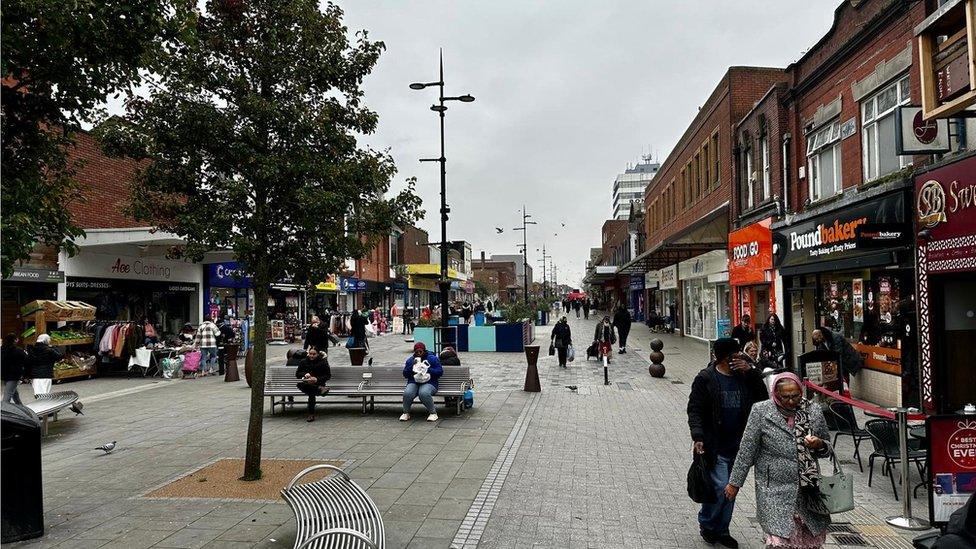
West Bromwich town centre
The prime minister is simultaneously trying to reassure his fractious party and find a way to somehow shift its persistently dismal position in the polls.
His reshuffle - hailed by some Tory MPs as a return to "solid centre-right government which the country needs" - prompted concern from others on the backbenches that it might fracture the electoral coalition the party built in 2019, when they took seats from Labour in places like West Bromwich.
The "New Conservatives" group, which consists of MPs elected since the Brexit referendum in 2016, has demanded a focus on the concerns of "ordinary people" like law and order - and migration.
In the face of such internal party pressure, Rishi Sunak opted for tough talk following the significant setback to the plan he claims will stop small boats crossing the Channel, saying flights to Rwanda would take off in the spring despite the plethora of parliamentary and legal challenges the policy could still face.
In Wednesbury, a town that sits in the West Bromwich West constituency which also flipped from Labour to Conservative in 2019, Sushil Kumar isn't convinced it's the right focus.
Serving pakoras to queuing punters from behind the counter of his Indian food truck, he described how his wife had been waiting for four years for NHS treatment.
"We've been paying tax for so long... they say they've got no space."
He is not a fan of the Rwanda scheme describing it as "not very nice".
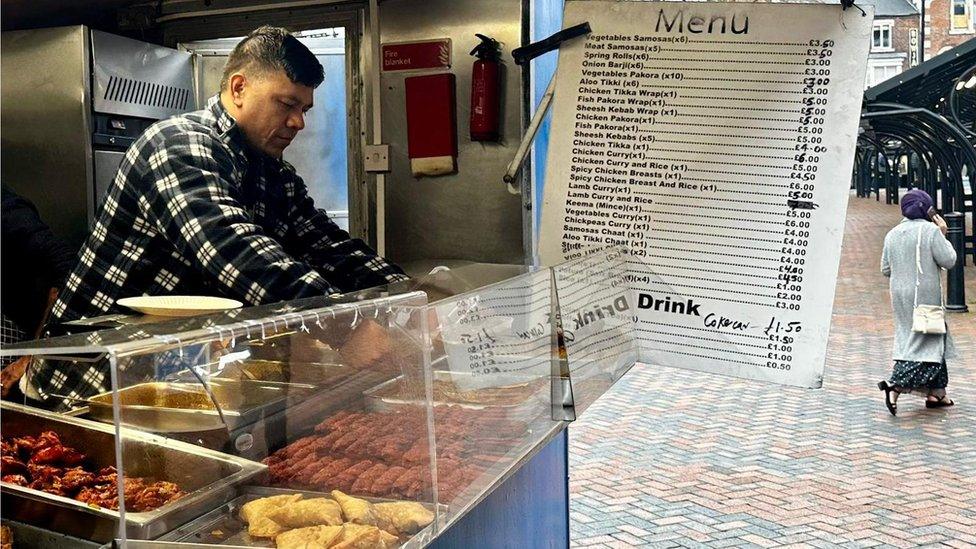
Sushil Kumar is more concerned about the NHS than the Rwanda policy
Cutting NHS waiting lists is one of Rishi Sunak's oft-repeated five priorities, along with halving inflation - a target met this week - growing the economy, reducing debt and stopping the boats.
According to the Migration Observatory, public opinion is divided on migration - around 23% believe immigration is bad or a very bad thing, while 52% think the numbers should be reduced either by a little or a lot.
On the specific issue of stopping boats, the public appear to be sceptical - one YouGov poll in August found that 80% of the public lacked confidence in the government's ability to achieve its goal.
Another poll for Ipsos in September said over half believed the government's Rwanda policy would reduce people trying to get to the UK without permission.
At the Orchard Coffee Lounge, a family-run business in Wednesbury, Liz Wallis and friends Karen Barfoot and Brian Wilkins agree with the sentiment of the policy but are sceptical about the approach.
"We don't have the infrastructure in this country to cope with more people," says Karen.
"I don't know what we can do, but we really do need to start reducing the intake in this country."
Liz says she doesn't mind the prime minister. "I don't mind anyone who is trying. And he's trying, and for me he's trying for all the right things."
Karen wishes there was less fighting in politics. "We don't need that, we need them to pull together."
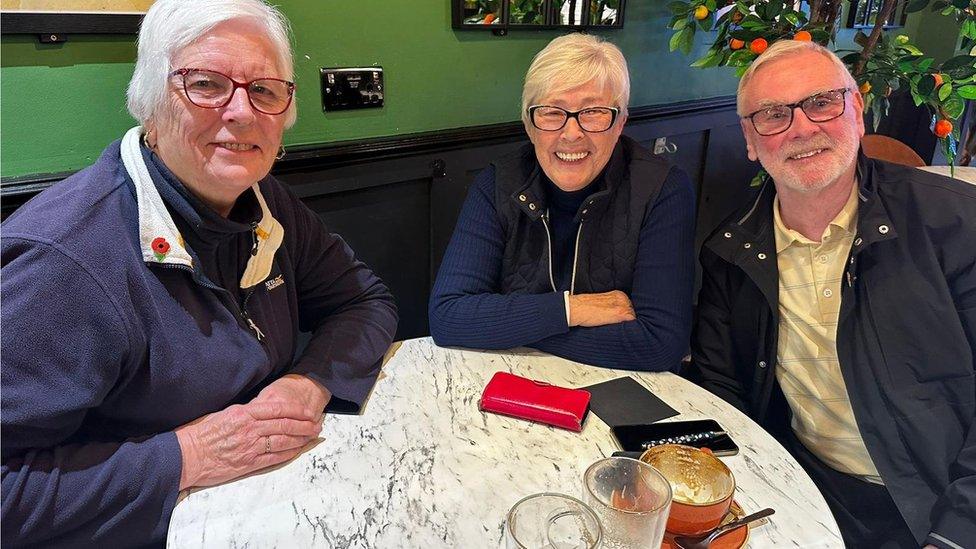
Karen, Liz and Brian at the Orchard Coffee Lounge - a cafe the prime minister visited earlier in the summer
Rishi Sunak visited the very same coffee shop back in the summer, the kind of outing party leaders make with their local MPs to highlight life beyond Westminster.
The prime minister is attempting to find a message that resonates with voters in the face of polls that clearly suggest they're lacking faith, and at the same time navigate the internal divisions in his own party over his chosen direction.
It is his style to try and tread that line carefully; the question is whether the approach he opts for ends up convincing, or confusing.
- Published15 November 2023
- Published17 November 2023
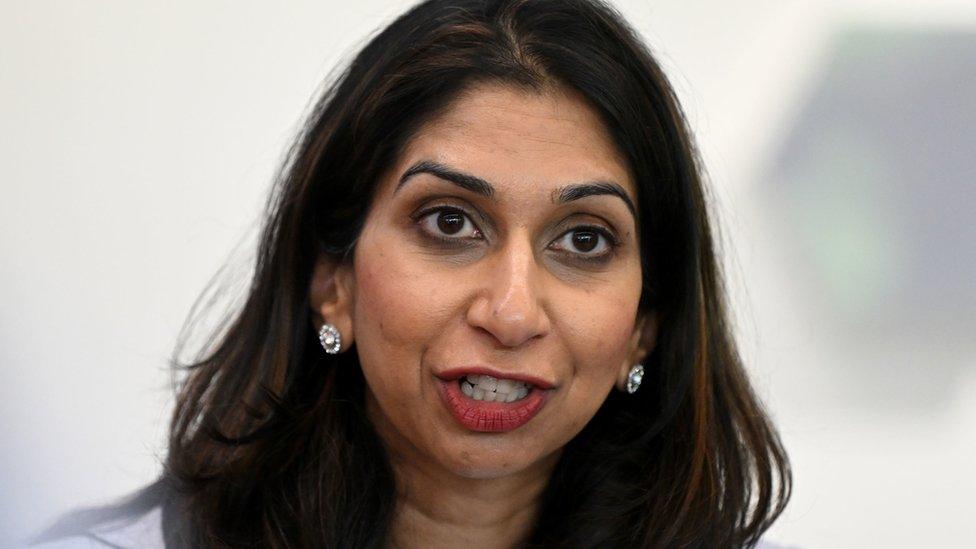
- Published14 November 2023
